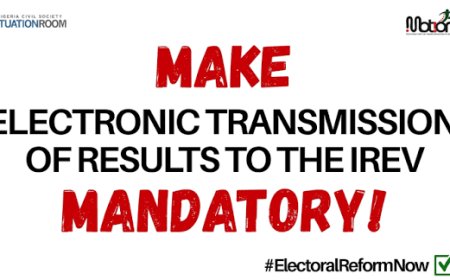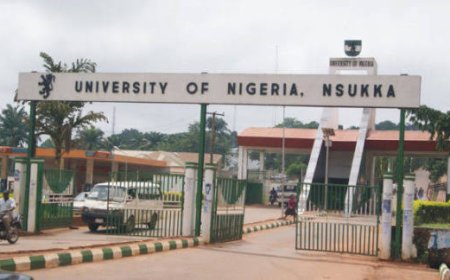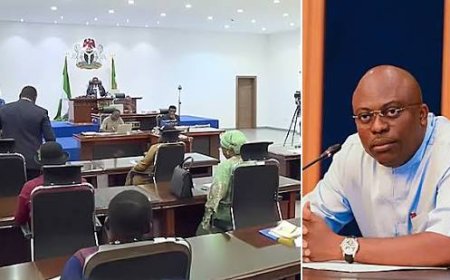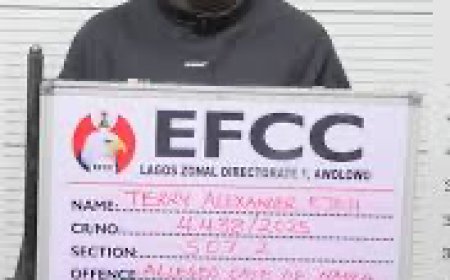By Chris Agbedo
The festive season, a time of joy and celebration, turned into a harrowing nightmare for families in Ibadan on 18 December, 2024, when not less than 35 innocent children lost their lives in a stampede during a Christmas funfair at Islamic High School, Orita Bashorun. The tragedy, which also left six children injured, has left the nation in shock and mourning. What was meant to be a joyous occasion became a grim reminder of the systemic failures that plague event management and public safety in Nigeria.
The Oyo State Police Command confirmed the tragic deaths and reported the arrest of key individuals connected to the event, including Naomi Silekunola, an ex-wife of the Ooni of Ife, and Abdullahi Fasasi, the principal of the hosting school. These arrests, while necessary, only scratch the surface of the larger issues at play. This devastating incident underscores the urgent need for better regulation, accountability, and safety measures in public gatherings.
The stampede was not an unforeseeable act of nature but an entirely preventable tragedy. While specific details surrounding the event are still emerging, certain critical questions demand answers: Was the event properly planned with safety protocols in place?Were there crowd control measures, such as trained personnel and barriers? Was the venue equipped to handle the number of attendees safely?
Early reports suggest a failure on multiple fronts, from crowd mismanagement to inadequate oversight by both the organizers and regulatory authorities. It is unconscionable that an event involving children, the most vulnerable demographic, could proceed without stringent safety precautions.
This tragedy reflects broader systemic issues in Nigeria, where public events often operate in a regulatory grey area. Event organizers frequently prioritize profit over safety, while enforcement of existing laws and standards remains lax. Authorities tasked with approving such events must ensure compliance with safety protocols, but this responsibility is too often neglected, leading to catastrophic outcomes.
Additionally, the lack of emergency preparedness exacerbates the impact of such incidents. Were there emergency exits? Was medical aid readily available? The six injured children receiving treatment are a grim testament to the absence of adequate medical response on-site.
The arrests of Silekunola, Fasasi, and others involved in organizing the event are a step in the right direction. However, accountability must go beyond these individuals. There should be a comprehensive investigation to identify all parties responsible, including government officials who may have approved the event without ensuring compliance with safety standards.
Justice for the victims and their families must be swift and uncompromising. This includes holding those at fault accountable and providing compensation and support to the affected families.
While the primary blame lies with the organizers and authorities, parents and guardians also have a role to play in safeguarding their children. Before allowing their children to attend such events, they must assess the safety measures in place. The tragic irony of children losing their lives at an event meant to celebrate their happiness is heart-wrenching. This tragedy must serve as a turning point for Nigeria. To this effect, a number of security measures may be quite instructive. Event organizers must obtain permits only after demonstrating strict adherence to safety standards. Authorities must enforce these regulations without exception. Events, especially those involving large gatherings, should require detailed crowd control plans, including trained personnel, barriers, and emergency exits.
Regulatory bodies should conduct unannounced inspections of events to ensure compliance with safety measures. Violators must face severe penalties. Event venues must be equipped with medical facilities, fire safety equipment, and trained emergency responders. Parents, guardians, and the general public need education on event safety and their rights to demand accountability from organizers.
The loss of 35 young lives is not just a tragedy for Ibadan but a national disaster that calls for urgent action. This is not the first time such an incident has occurred, and if systemic changes are not implemented, it may not be the last. The government, civil society, and private sector must collaborate to establish a culture of safety and accountability. As a nation, we must honour the memory of these children by ensuring that their deaths are not in vain. Their loss should catalyze a nationwide effort to prioritize safety in public spaces, particularly for our most vulnerable citizens.
In conclusion, the Ibadan Christmas funfair stampede is a stark reminder of the consequences of negligence and a lack of accountability. While nothing can undo the pain inflicted on the families of the victims, the tragedy presents an opportunity to address the systemic issues that caused it. Let this incident ignite a national dialogue about safety, regulation, and responsibility. Only by learning from this calamity and implementing meaningful changes can we prevent future tragedies and create a safer Nigeria for all. To the families of the unfortunate victims, may the good Lord grant them the fortitude to bear the irreparable loss. And may the souls of the innocent children find eternal rest in the Lord's bosom, Amen.


































































